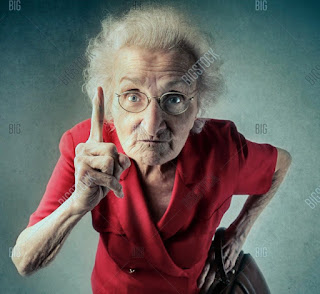Yasunari Kawabata (June 11, 1899 – April 16, 1972)
Yasunari Kawabata won the Nobel Prize in Literature in 1968 for his trilogy Snow Mountain, Thousand Cranes and The Old Capital. In 1966, he had been nominated but had failed to win. Born in Osaka, he graduated from Tokyo Imperial University in 1924. He was president of the Japanese P.E.N from 1945 to 1965. His novels were distinguished by his sparse and poetic style.
On
April 16, 1972, around 11 am, Yasunari was sorting letters in his family’s Kamakura
home, 50 km, south of Tokyo. Around 2:45, Kawabata told his family that he was
going for a walk and took a taxi to the coastal town of Zushi City, 5 km away,
where he maintained a workshop in Marina Mansion. When he wrote, he lived alone
and worked alone in this studio. Tsuguo Edanami,
the driver, dropped Yasunari at Marina Mansion in Zushi City after 3:00 pm. When
he did not return home at night, his domestic helpers, Toshie Shimamori and
Nuiko Kazawa, visited Marina Mansion after 9:45 pm.
In Room 417, they found Kawabata dead in the bathroom with a 1.5-metre gas hose in his mouth. The other end of the hose was connected to a gas stove sitting at the entrance of the bathroom. A bottle of sleeping pills was found in Yasunari’s bedroom. Police classified the case as suicide but Yasunari’s widow disputed this verdict as there was no suicide note. She claimed that her husband slipped and fell and the gas hose got entangled around him.
Masanao Kurihara, a psychiatrist who had been treating Kawabata for several years, said that the author had been suffering from insomnia and had been taking sleeping pills even while he was busy. Masanao concluded that Yasunari was depressed as he could not write anymore. The writer once told Masanao, “My eyes are sleepy and my movements are slow. This is like a drug addiction (sleeping pills). I personally think that creation is the life of an artist, but I can’t create. And I think it’s pretty tough on me.”
In 1977, Yoshimi Usui penned a novel claiming that Yasunari had a lover who left him, leaving him devastated and prompting his suicide. He was sued by Yasunari’s family.
aaaaaaaaaaaaaaaaa
Yukio Mishima (January 14, 1925 – November 25, 1970)
Yukio Mishima’s real name was Kimitake Hiraoka. He was nominated three times for the Nobel Prize in Literature in 1963, 1964 and 1965. Yukio was a novelist, playwright, essayist, actor and model. After graduating from Tokyo Imperial University, he worked in the Japanese Ministry of Finance. His first novel Confessions of a Mask, published in 1949, shot him to fame and he turned full-time writer, creating more than 40 novels, plays, and short-story and essay collections during his lifetime. His schedule was to write from midnight till dawn every day. His works were themed with death, suicide, nationalism and self-torture due to inner demons.
On 25 November 1970, Mishima and four members of the Tatenokai—his small private army—Masakatsu Morita, Masahiro Ogawa, Masayoshi Koga, and Hiroyasu Koga visited the commandant Kanetoshi Mashita of Camp Ichigaya, a military base in Tokyo. Inside, they barricaded the office and tied the commandant to his chair. Yukio stepped out onto the balcony to address the soldiers gathered below. He was disappointed that after World War II, America had re-written Japan’s Constitution, restricting its military powers. According to him, Japan had lost its cultural and religious roots, had become obsessed with materialism, globalism and Communism. Excerpts of speech are below:
“It is a wretched affair, to have to speak to Jieitai men in circumstances like these. I thought, that the Jieitai was the last hope of Nippon, the last stronghold of the Japanese soul. But Japanese people today think of most money, just money. where is our national spirit today? The politicians care nothing for Japan. they are greedy for power. The Jieitai, must be the soul of Nippon. The soldiers! The army! But.... we were betrayed by the Jieitai! Listen! Listen! Hear me out! We thought that the Jieitai was the soul of national honor! The nation has no spiritual foundation. that is why you don't agree with me! You don't understand Japan.…
“There you are in your tiny world. You do nothing for Nippon! Will any of you rise with me? You say that! Have you studied Bu (the warrior ethic)? Do you understand the way of the sword? What does the sword mean to a Japanese? I ask you. Are you men? Are you bushi? I see that you are not. You will not rise. You will do nothing! The constitution means nothing to you. You are not interested. I have lost my dream of Jieitai! I salute the emperor! Tenno Heika Banzai! Tenno Heika Banzai!”
After his speech, Yukio went inside the office of Kanetoshi Mashita and disembowelled himself. As he lay dying, Masakatsu Morita tried to cut off Yukio’s head as part of the suicide ritual but failed after three attempts. Hiroyashu Koga spared Yukio further agony by completing the task. Then Morita performed hara-kiri himself and his head was lobbed off by Hiroyasu Koga.
Yukio Mishima was cremated and his ashes interned at Tama Cemetery in Tokyo. In 1985, Hollywood made a film about him titled Mishima: A Life in Four Chapters.








qqq.png)
.png)












.png)






EDIT.jpg)















